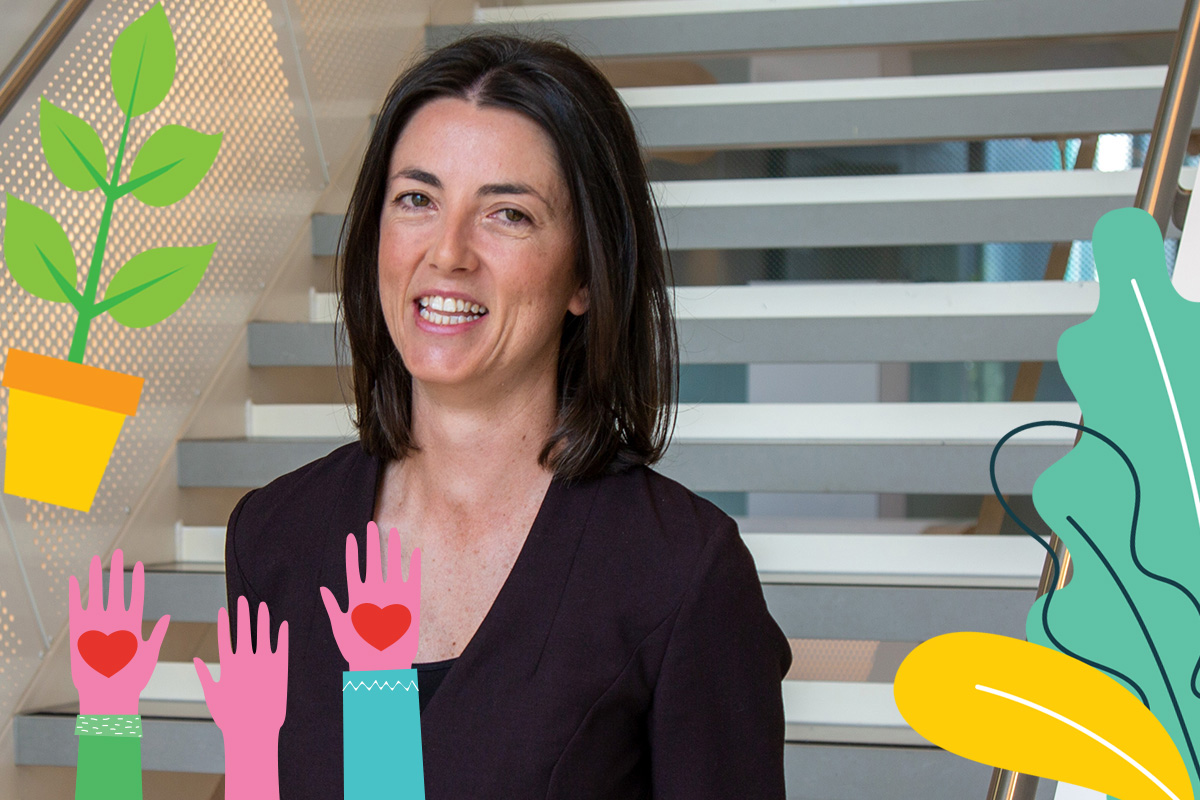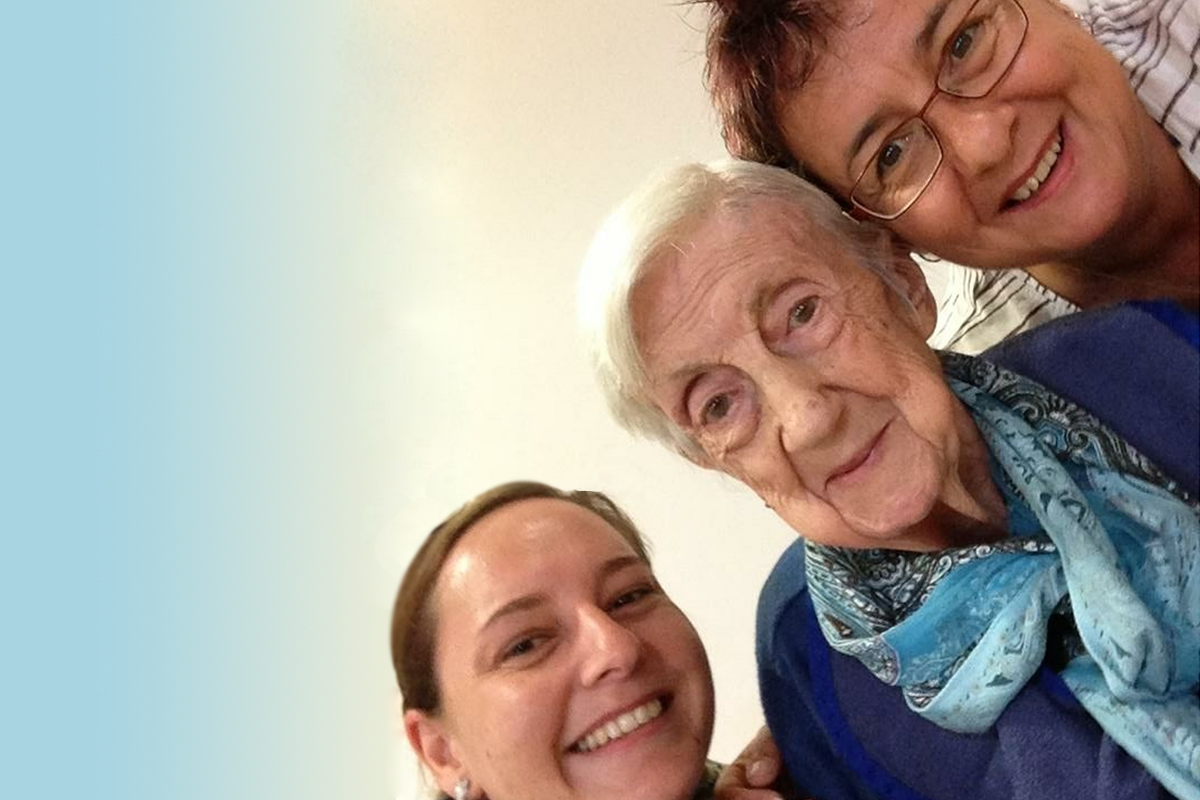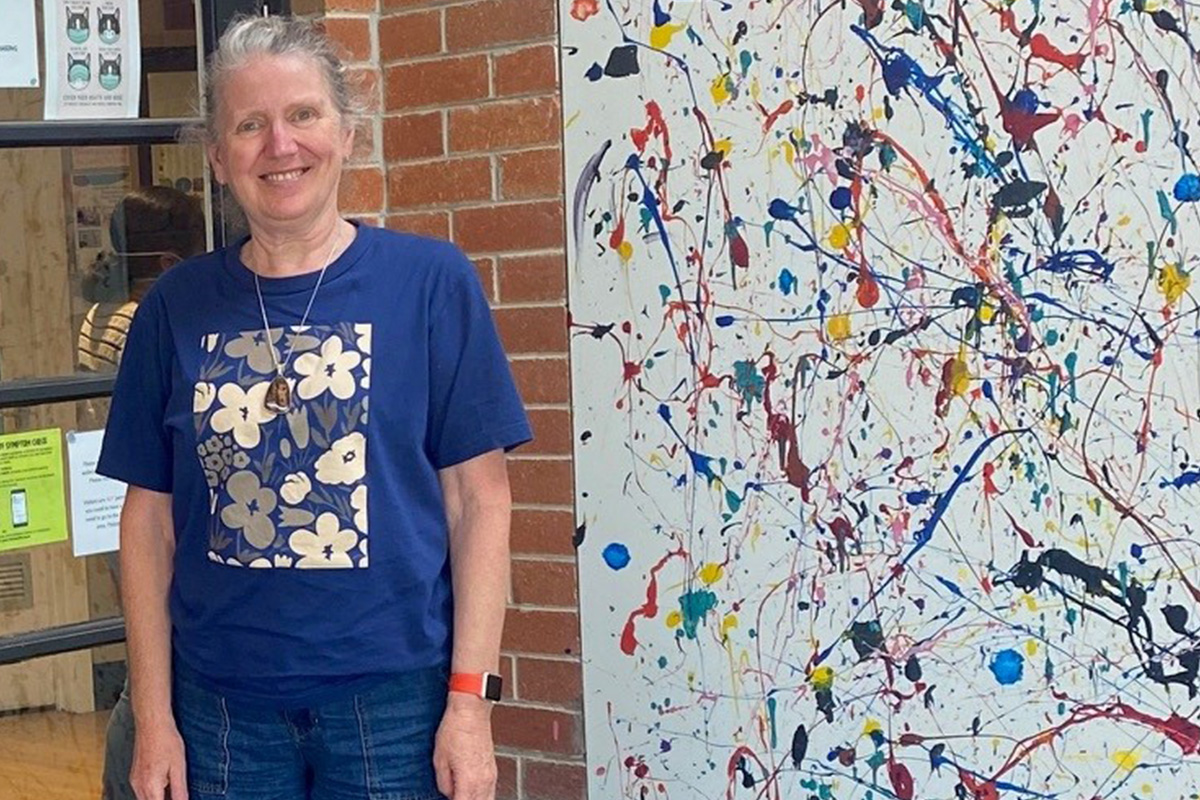
Patricia Kitney, bottom left, with Medical Pantry staff and volunteers. Photo supplied
‘I’m always talking about it. Everywhere I go, I tell people about Medical Pantry,’ says Patricia Kitney. ‘If you plant the seed, it might go further; it might develop into something that someone else will take on board.’
In her day job, Patricia is a perioperative clinical nurse educator and research nurse at Western Health, as well as a lecturer at RMIT University and the Australian College of Nursing – among other things. She’s spent much of her award-winning career teaching and has cultivated a special interest in helping students from culturally and linguistically diverse backgrounds. But as a woman who likes to keep busy, and who loves a challenge, it’s little surprise she fills her time outside of work as a board member at Medical Pantry, as well as volunteering with the organisation.
Medical Pantry rescues surplus, high-quality medical supplies and redistributes them to communities and organisations in need. It was founded by anaesthetist Dr Martin Nguyen, following a two-week clinical waste audit he conducted in operating theatres. The audit revealed that 30 per cent of the waste was unused, and even unopened, meaning it could be safely recycled.
‘So, he gathered some likeminded people and started Medical Pantry.’
Patricia was one of those people. ‘I’ve always had an environmental stewardship approach to things,’ she says, ‘and there are so many creative ways of re-using equipment, so it doesn’t go to landfill.’
From little things big things grow
Founded in 2019, Medical Pantry has diverted tens of thousands of tonnes of medical supplies from landfill. Examples include PPE sent to healthcare workers in India, Fiji, Papua New Guinea and Malawi, and medical equipment sent to hospitals and clinics in Zimbabwe and the Dominican Republic of Congo.
They also donate medical supplies and equipment to animal welfare organisations; education institutions and researchers; disaster relief (including to bushfire- and flood-affected communities and to medical teams dealing with the Samoan measles outbreak, Hurricane Yasa in Fiji, the war in Ukraine and more); small businesses and even individuals – Patricia notes that they’ve donated empty Propofol and Panadol bottles to couples to serve as flower vases at their weddings!
‘In 2022 alone, we donated to 14 countries,’ she says. ‘We received 1445 kilograms of donated goods that can be re-used and we supplied 5233 kilograms of donated items to other organisations to be re-used. That’s more than four times what we collected in that one year.’
The donations come from all over, including Medical Pantry’s partners – among them, the Alfred, Epworth, Peter MacCallum Cancer Centre, and the Royal Victorian Eye and Ear Hospital, Royal Children’s Hospital, Royal Melbourne Hospital, Royal Women’s Hospital and St Vincent’s Hospital.
By way of example, Patricia mentions that RMIT University donated much equipment after it refurbished its nursing education labs. ‘As you can imagine, those labs had no sick patients, no bleeding patients, and they were upgrading all of their equipment.’ It was all perfectly usable, so ‘all these beds, lockers, bed pans and a lot of other equipment went to Fiji’.
She also mentions a researcher who was studying laryngoscopes. ‘We provided them with all these older ones that were no longer being used so they could compare.’
Volunteering for good
As a volunteer, Patricia regularly helps with collecting, sorting and packing of the donations. She joins volunteers from all sorts of backgrounds – students from all walks of life, accountants, health professionals and more – and has even roped in her husband ‘because he’s got a ute so he can collect boxes [of donations]’ on his way home from work.
‘I find it very satisfying,’ she says, ‘because I can see that we’re not contributing to landfill. We’re not contributing to this mass of waste that the healthcare system generates.’
That mass of waste she refers to is significant – around 35,000 tonnes annually, just from Victorian public health services. Globally, healthcare contributes to 5 per cent of total greenhouse gas emissions. Every little bit diverted away from landfill counts.
‘It’s really exciting and wonderful to see everyone’s commitment to Medical Pantry,’ Patricia says. So much so that she jokes they need a bigger warehouses to hold all the donations. ‘It’s such a fantastic opportunity to make a difference, and it helps us think a bit more creatively about what we use and how we ‘dispose’ of it.’
Medical pantry is always looking for volunteers, and donations (it’s a registered charity so financial donations are tax deductible). Organisations and services that require supplies can search the inventory ‘like a regular pantry’ and order whatever they need.




